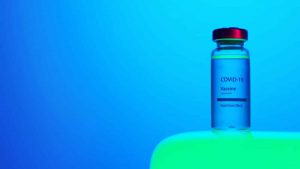Which face masks are best against allergies?

With the arrival of spring and the presence of pollen in the air, allergy symptoms increase exponentially. However, the seasonal suffering of coughing, sneezing, and itchy eyes and nose, have all been heavily reduced due to the widespread use of face masks. But which face masks offer the best protection from allergens?
Types of face masks
The COVID-19 pandemic has helped introduce many people to the wide variety of face masks available.
- Hygienic: While these often have the appearance of surgical masks, hygienic masks are made from cheaper materials and thus offer modest protection against infections. Health authorities typically recommended them for healthy people who are able to follow a range of other safety precautions. Some, but not all hygienic masks, are designed to be reusable.
- Surgical: These are made from 3 layers of fabric and provide high bacterial filtration efficiency. Surgical face masks protect both the wearer as well as people around them, and are cleared for use in medical environments. Their optimum protection does not exceed 4 hours and they cannot be reused.
- FFP2 and FFP3: Also known as “respirators”, these face masks are recommended for medical personnel who have close contact with infectious patients. They are tight-fitting, and if worn correctly create a seal around the wearer’s face. FFP2 capture at least 94% of airborne particles, whereas FFP3 masks filter at least 99% of airborne particles. They can both be reused so long as they have been sterilised properly and retained their shape.
- Cloth: Any apparel made from loosely woven cloth, whether it be made at home or bought in a store, offers minimum protection. While often washable and reusable, they are not certified as antibacterial protection.
Best mask for allergy mitigation
Due to their tight fit and high filtering capabilities, allergologists recommend the use of FFP2 face masks. Just as it offers the best protection against Covid-19, FFP2 masks also offers the best protection against allergens.
The wearing of FFP2 face masks provides significant protection against dust mites and pollen in people with allergic rhinitis, and significantly decreases allergy symptoms in the nose and eyes. In fact, this measure is the most intensive nondrug recourse for preventing dust mite and pollen induced symptoms in allergy sufferers.
Other advantages of FFP2 masks
- Fit. Its nose clip and ergonomic design allow for this mask to create a seal around the mouth and nose. This seal is key for ensuring only filtered air reaches our lungs.
- Filtration. FFP2 effectively combines electrostatic and mechanical filtration, thus providing a highly efficient screening of air particles.
- Comfort. The mask’s valve makes breathing easy, thereby preventing the wearer from feeling bothered or anxious.
Other tips for keeping allergies at bay
In addition to the use of face masks, here are a few tips to fend off allergies during springtime.
- Those who are very susceptible to pollen should refrain from spending time in open fields, especially on days when pollen levels are high. Check the internet for the daily air quality before going out.
- Check and clean the air-condition filters before travelling by car and avoid opening the windows while driving.
- Ventilate the home at mid-day, as the level of pollen is highest in the morning and evening.


